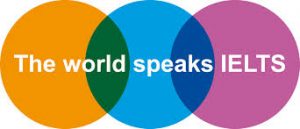
IELTS lessons by Skype

Exam preparation by Skype. How effective are IELTS Skype lessons?
IELTS is a demanding exam that requires a degree of professional tuition if you want to succeed with a high score.
You can learn many aspects of the exam yourself but there are certain elements that really do benefit from having a personal English teacher on hand to help.
Speaking :
The speaking test needs a partner to practice with. English lessons by Skype can help you to develop your ability to present information to the examiner. Having someone asking the correct questions and making notes of your answers means at the end of the lesson the teacher will be able to tell you where you are making mistakes and which areas you are stronger or weaker in.
Typically students lose marks in IELTS speaking in the following areas.
- Not answering the question correctly
- Not demonstrating a broad range of vocabulary
- Making mistakes in grammar
The best way to improve is to practice as many questions as possible with your teacher from the speaking test.
Below : some typical questions used in the exam.
Click here >> IELTS Speaking ‘cue cards‘
When taking IELTS lessons by Skype, ask your teacher to go through each questions with you. Practice listening carefully to the question, try to avoid asking them to repeat – this way you learn to focus on hearing the questions clearly!
When answering the question the teacher will make notes. At the end of the Skype lesson the teacher will explain to you how to improve your mark and go through each answer with you. You can get a higher score by adding more complex vocabulary and expressions, fixing little mistakes you might make in grammar and pronunciation and making sure that you have kept on topic.
Why not try learning some key vocabulary and expressions that can be injected into a range of answers. These expressions are know as ‘functional expressions’ and can really help you if you are stuck for something to say and to add extra weight to your answers. Remember expressions demonstrate an advanced knowledge of English and will gain you a higher score in the exam.
Starting the Speaking Part Two presentation
“I think I’m ready.”
“Can I start?”
“Shall I start?”
“Is that one minute?”
“I’d like to speak about…”
“I’m going to talk about…”
“I’ve chosen to present…”
“I’m really glad I got this topic because…”
“There were many things I could have spoken about but…”
“It’s a strange coincidence that I got this topic because just yesterday…”
“The only thing I could think of to speak about is…”
“This doesn’t exactly match the question, but…”
“There were many things I could have talked about, but I chose…”
Thinking aloud/ Filling silence
“What’s the next question?”
“Have I covered everything? Oh, no…”
“I can’t remember the name in English, but…”
“What else can I say? Well, I suppose…”
Vague answers
“…something like…”
“around/ about/ approximately/ more or less”
Getting back on topic
“Anyway,…”
“Where was I? Oh yes,…”
“Getting back to the questions on the sheet,…”
“I think I’m going off topic.”
Talking about things you can’t remember
“I can’t remember… exactly, but…”
“I can’t recall whether… or… not, but probably…”
“I’ve forgotten…, but…”
Ending the Speaking Part Two presentation
“That’s all I can think of to say.”
“That’s it” “
“I think I’ve covered everything.”
“Umm, that’s it.”
“I can’t think of anything else to say.”
“Can I stop there?”
“Is that enough?”
“Is that more than one minute?”








